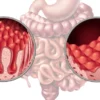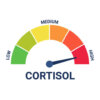
Gut cleansing can be a popular term that’s used to describe a range of approaches to help with gut health. This may involve certain supplements to support the gut microbiome by killing off certain bacteria.
Often it’s used when someone is experiencing digestive symptoms such as bloating or diarrhoea, but it can also be used in situations where symptoms may stem back to issues in the gut. For example, it might be considered that a gut clean may help address the cause of skin issues.
While gut cleansing may be helpful for some, it’s not always the right approach in every single case. Additionally, there are a variety of approaches that may be considered.
The Importance of Gut Health
It’s becoming more well-known and understood that the importance of gut health stretches far beyond digestive function. A central part of what makes gut health important is the gut microbiome. These are the trillions of organisms (bacteria, yeasts, archaea) that make up this microbial ecosystem.
From a purely digestive perspective, these organisms help to digest fibres and harvest nutrients from the food but also produce beneficial compounds that nourish the lining of the digestive tract. So, as well as the gut microbiome, the gut lining is another central part of why the gut is important.
Not only does the gut barrier help to regulate what’s absorbed into the body it is also where the immune system sits, with 70% of all the immune cells in the body being located in the small intestine.
It’s this communication pathway, from the microbiome to the gut lining and these elsewhere in the body that can lead to symptoms outside of the gut. This can be where these communication pathways are discussed.
For example:
- The gut-skin axis
- The gut-brain axis
- The gut-thyroid axis
This is why supporting the gut may lead to improvements in a wide area of health.
Signs of an Unhealthy Gut
There are 2 possible sets of symptoms that may indicate an unhealthy gut. These may include:
- Digestive symptoms
- Non-digestive symptoms
Digestive symptoms include:
- Bloating
- Gas
- Flatulence
- Heartburn
- Diarrhoea
- Constipation
Non-digestive symptoms that may stem from the gut may include:
- Migraines
- Brain fog
- Acne
- Thyroid conditions
- Eczema
It may also be inferred from someone’s diet that their gut is unhealthy. Even if they feel there are no health issues. Someone whose long-term dietary patterns involve the intake of more processed and refined food are likely to have an altered balance of the gut microbiome, which may lead to an increased risk of health issues.
It’s also possible not to have any of the typical digestive issues but still have imbalances in the gut that may lead to symptoms elsewhere in the body. This is where gut imbalances may lead to some of the non-digestive symptoms listed above.
What is Gut Cleansing?
When a gut cleanse is mentioned, it’s often referred to as a way to remove something ‘bad’ from the gut. This may be a parasite or another organism such as candida or even an overgrowth of bacteria such as SIBO.
This can involve using certain tools and approaches (explained below) to get the gut back into a better balance. Often, the presence of less beneficial organisms can start contributing to digestive dysfunction, so bringing it back into balance can help restore its function.
Other approaches may use bingers or clays to remove ‘toxins’ from the bowel. These types of approaches often do not fully address the cause of symptoms but may reduce the severity of symptoms.
Types of Gut Cleansing Methods

A range of methods are used with reported benefits for cleansing the gut. It is important to remember that not all of them may be backed by science and appropriate.
These include:
- Probiotic supplements
- Herbal antimicrobials (anti-bacterial/parasitic/yeast)
- Clays (eg bentonite, zeolite)
- Liver support
- Colonic hydrotherapy
- Juice fasts and cleanses
What are the pros and cons of gut cleansing?
Before considering a gut cleanse, there are pros and cons.
Some of these will relate to the type of cleanse, possible benefits and also any risk factors that may be involved.
While a cleanse should often be carried out under the supervision of a practitioner, if you’re going at it alone, starting with the ones with the least chance of causing harm is often a good idea.
Pros
The pros of gut cleansing can be that appropriate levels of intervention can lead to a dramatic improvement in gut health as well as overall health. This is where selective treatment can be used to target a specific issue.
Cons
The cons of a gut cleanse may be that it’s not appropriate in a lot of cases. In some cases, symptoms can be inappropriately blamed on a gut infection, leading to using to many antiomicrobial herbs.
Often this happens when symptoms start from food poisoning or traveller’s diarrhoea. Something I have commonly seen is that these patients may feel these symptoms due to a parasite remaining in the bowel. While this can be true, a post-infectious reaction needs to be considered also, as this requires a different approach.
Read more about Post-Infectious IBS
Other cons to treatments such as colonic hydrotherapy are that these may help to improve symptoms in the short term, but do not address the cause.
Potential Risks and Considerations
It is not uncommon for those with digestive issues to continue for long periods of time with gut health cleanses. While short-term treatment with antimicrobial herbs can be helpful is a range of situations, long-term use, particularly using high-strength herbs, can lead to issues.
This can be related to these herbs not only targeting organisms that may not be beneficial but also targeting beneficial bacteria and yeast as well. This starts to deplete the gut microbiome, leading to a reduction of microbial diversity.
Another downside is that by focusing only on cleansing, the actual underlying issue remains unresolved. This underlying factor may worsen over time if not addressed.
Who Should Avoid Gut Cleansing?
For the most part, a cleanse should be carried out under the care of a practitioner. This can help them to understand the overall picture and prescribe the most appropriate approach as a cleanse-type approach is not always needed.
Patients who may need closer monitoring as those who are pregnant, on multiple medications or those currently undergoing treatment for cancer.
If cleansing, especially with herbs, has been the main approach without seeing any improvement in symptoms, often this is where a different approach is needed. As described, there can be longer-term consequences to ‘over-cleansing’.
Side Effects and How to Manage Them
For those with gut issues, there can be a die-off reaction which can be a side effect of bacteria releasing toxins as they are killed. This may be in the form of headache, brain fog or the feeling of having a cold or flu.
Often this can only last for a few days and will resolve after this time. However, reducing the doses of the herbs may calm this as can adding in a binding agent (to ‘mop-up’) these toxins, such as charcoal.
If a fast or juice cleanse is being followed, these can lead to issues such as low energy, fatigue and sugar cravings. Again, this may only be an issue for the first few days and may then calm but itself. In other cases, a pre-diet may be needed to help regulate blood sugar levels and prepare the patient for the restricted food intake.
Conclusion – Should you cleanse your gut?
The answer is, that is depends. It depends on the symptoms, health history and any test results.
For many, more simple, gentler and nourishing approaches can help bring the gut back into a better place.
With this in mind, it can be helpful to think about the gut as a garden to nurture and nourish rather than a battleground to bomb. This heavy-duty cleansing/bombing approach may cause more harm in the long term.






